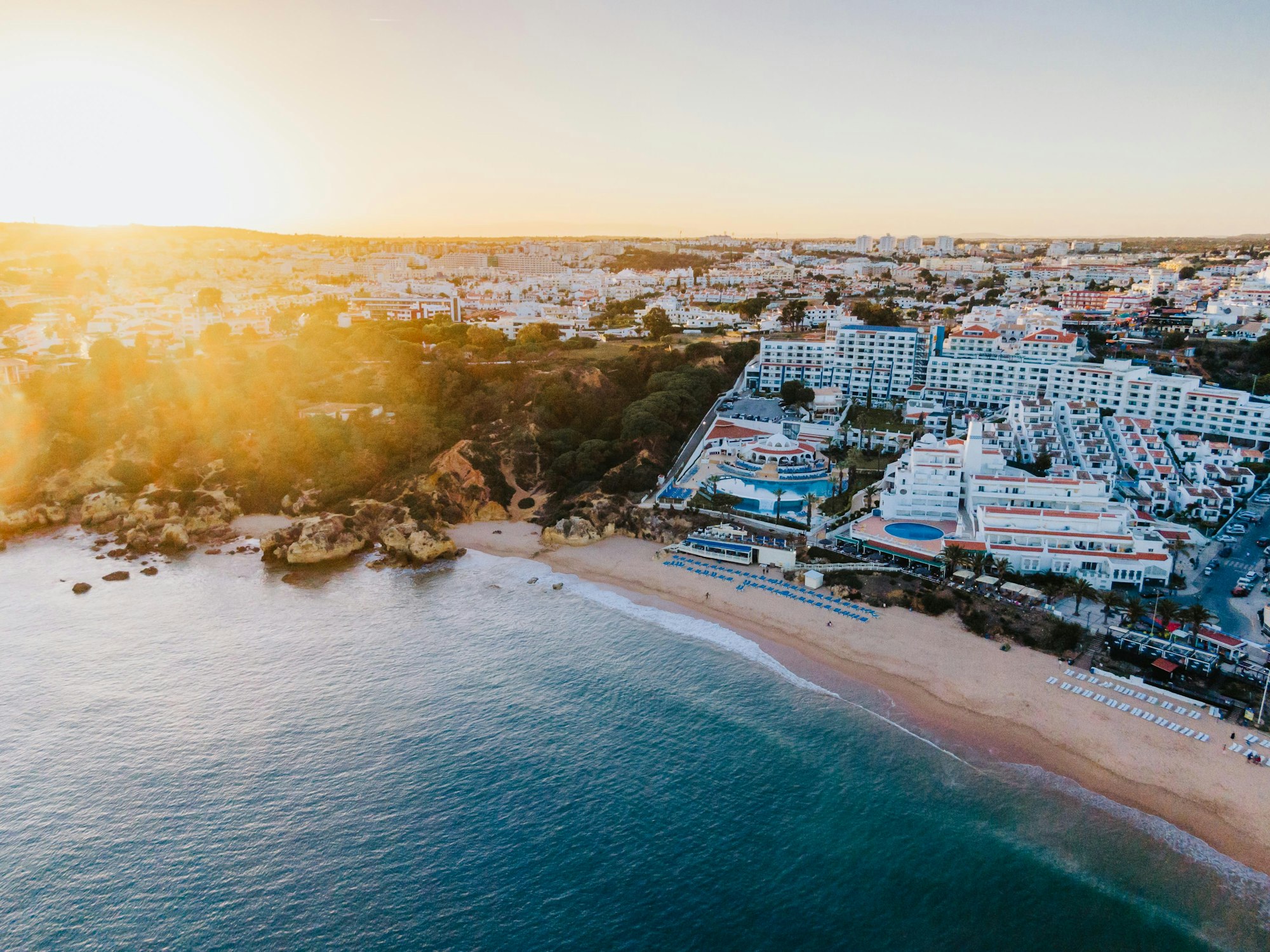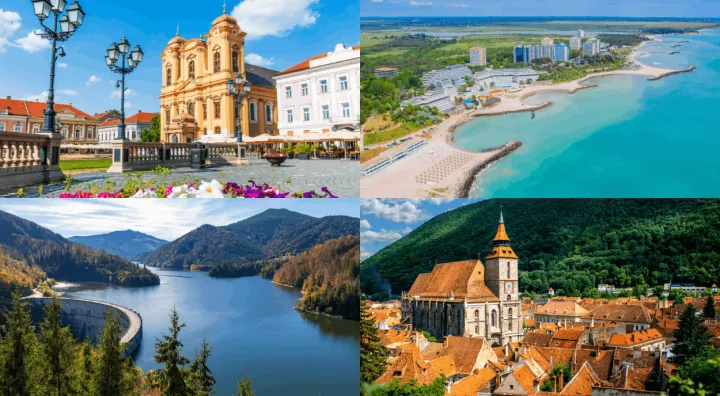France Digital Nomad Visa: Requirements and How To Apply

France, the land of world-class museums, buttery croissants, and a thriving startup scene, might seem like a paradise for digital nomads. And it can be thanks to France's Long-Stay Visa!
This guide will delve into the intricacies of the Long-Stay Visa application process, including eligibility requirements, timelines, and costs. We'll equip you with the knowledge to legally work and truly immerse yourself in the French way of life.
So, grab a pain au chocolat, settle in, and get ready to unlock the exciting possibilities of becoming a digital nomad in France!
Quick Visa Facts
Visa validity period
Up to a year
Possible to extend?
No
Who can apply?
Non EU/EEA citizens
Minimum Income Requirements
N/A
Cost of visa application
€99
Time for visa applications
Between 15 and 45 days
Does France Have a Digital Nomad Visa?
Unfortunately, France does not offer a specific visa for digital nomads. Most non-French citizens, though, can enter the country for a period of 90 days through the Schengen Area agreement.
Although working during this time is technically not allowed, remote work is generally accepted.
However, you must apply for a Long-Stay Visa if you want to work and stay in France for over 90 days.
This visa permits applicants to stay in France for up to a year and work as self-employed individuals or freelancers. The visa application process can be complicated, and it is essential to understand all the technicalities.
We will attempt to clarify all the details to ensure a smooth application process.
France's Long-Stay Visa Overview for Digital Nomads
If you’re not from the EU/EEA, you must apply for a visa before entering France.
As mentioned, the most used visa for digital nomads is the Long-Stay Visa. It allows you to stay in France for up to one year. By holding this visa, you can conduct your work as a freelancer or self-employed.
The process is easier if you plan on working with a business based outside of France.
For any stay in France exceeding 90 days, you must apply in advance for a Long-Stay Visa. In this instance, your nationality does not exempt you from the requirements.
Whatever the time of your planned stay, your Long-Stay Visa must be between three months and one year. To extend your stay beyond your visa's validity period, you must apply for a residence permit at a prefecture.
During its validity period, the Long-Stay Visa is equivalent to a Schengen visa, enabling you to move around and stay in the Schengen Area outside France for periods not exceeding 90 days over any period of 180 consecutive days, under the same conditions as if you held a Schengen visa.
Who Can Apply for France's Long-Stay Visa?
Non-EU digital nomads who want to stay longer than 90 days can apply for a Long-Stay Visa.
Most nationalities are subject to Long-Stay Visa requirements to stay in for more than 90 days, except for:
- Citizens of the European Union, Monaco, and Andorra, for all territories.
- Citizens of the European Economic Area (EEA) and Switzerland, except French Polynesia, New Caledonia, Wallis-et-Futuna, and the French Southern and Antarctic Lands (TAAF).
How to Apply for France's Long-Stay Visa as a Digital Nomad
You can apply online by visiting the official link here: https://france-visas.gouv.fr/en/web/france-visas/ma-demande-en-ligne
This is the step-by-step process you will need to go through:
Step 1
Firstly, you will need to gather information on your situation and seek information to check whether you need a visa.
The visa wizard will help you determine, depending on your situation, the visa requirements, the visa fees, and the required supporting documents.
If you have stayed in the Schengen Area within the past 6 months, please use the Visa Calculator tool to determine the precise number of days remaining for your authorized stay.
In addition to providing important general information, this link offers specific pages related to your place of residence, so that you can access the most accurate information for your visa application.
Step 2
Then you will need to fill out the visa application form.
If your home country is eligible, you must fill out the online application form. You will be guided through the whole process by on-screen explanations. You can check the document list required in this guide's dedicated paragraph.
If your country is not eligible, please check the appropriate procedure on your country's application page.
Step 3
The third step will be to make an appointment with the visa application center.
You will find all the necessary details to make an appointment on the country of the application page.
Ensure you allow enough time before your departure date to schedule an appointment to review your application.
Check also the average appointment waiting time to ensure that you can submit your application three months to two weeks before your departure date for an extended stay visa and six months to two weeks before your departure date for a short stay visa.
In most cases, the consular services use external service providers to receive visa applicants and collect their documents.
Step 4
Next, you will need to submit your application. Below is some important information about your application.
Biometrics
All visas issued by France are biometric visas.
Any visa applicant aged 12 or older must submit his or her visa application in person. The following biometric data will be required: a photo (scanned or taken during your appointment), and ten fingerprints.
If you hold a biometric Schengen visa issued in the past 59 months, your previous biometric data can be re-used.
Application in person
You must attend your appointment in person with all the required documents. Also, bring a copy of each document, including the passport and a copy of its ID pages.
The service provider (or consulate) will receive you, review your application, collect the visa fee, collect your biometric data (photo and fingerprints), and keep your passport and copies of all your supporting documents to forward them to the consulate.
The visa application process will take approximately 20 minutes at the visa center.
You may be exempt from attending your visa appointment in person if :
- Your fingerprints were previously collected as part of an earlier application less than 59 months before the date of your current application.
Step 5
You will need to pay the visa application fees. They include the following:
- The administrative costs incurred for the processing of your application. The amount paid is kept by the administration, even in cases where visas are denied. For more details, please refer to the table of application fees by visa type (pdf).
- If an external service provider receives application fees, this provider is responsible for collecting the appropriate fees. The service fee may differ from country to country but not exceed €40 per visa application. The administration also authorizes external service providers to offer additional services at cost.
Step 6
Once your application has been submitted, you can track your application at this link: https://france-visas.gouv.fr/en/web/france-visas/track-your-application-status
You will be notified when your passport is ready for collection from the visa center where you applied. Visa applications are generally processed within 15 days. This period can be extended up to 45 days in particular cases if the examination of the application justifies it.
In some instances, the passport can be sent by postal services.
Documents Required for Applying to the Long-Stay Visa for France as a Digital Nomad
To submit a visa application, you must provide the following documents:
- A travel document (original + copy)
It must have been issued less than ten years before and contain at least two blank pages. It must have validity at least three months before the date you intend to leave for the Schengen area; or, in case of an extended stay, at least three months more than the expiry date of the visa requested.
Be sure to send (scan) ALL PAGES of your travel document containing visas, entrance and exit stamps, or any other inscription.
If you have an official travel document, a note verbale is required.
- Two recent ID pictures in ISO/IECI format (pdf)
- Purpose of travel/stay: You will have to promise to not to exercise any professional activity in France, if applicable, accompanied by a letter explaining your project.
- Proof of your socio-economic situation: This will be the proof of funds to meet needs in France.
- Proof of accommodation in France: This will include a property title deed, tenancy agreement, or any other supporting document; or proof that a person living in France has granted the lodging. If you don't have any of those, you will need a document explaining the lodging arrangements planned for France.
- Travel health insurance: The insurance must cover the visa’s entire validity period. You can check our top pick of the best digital nomad insurance plans here if you don't know where to start looking for a global travel insurance policy.
- Proof of residence outside of France: If you are not a national of your country of residence, you must prove that you are legally resident in that country (e.g. a residence permit).
How Much Does France's Long-Stay Visa Cost?
The amount to be paid to apply for the Long-Stay Visa for France is €99.
This amount is for informational purposes only and must be paid in the currency specified by the Consulate / Embassy (i.e., euro). Certain individual cases may give rise to different prices, following applicable regulations.
Timeline for Applying for the France Long-Stay Visa as a Digital Nomad
Visa applications are generally processed within 15 days.
This period can be extended up to 45 days in particular cases if the examination of the application justifies it.
What if I’m Not Eligible for France's Long-Stay Visa as a Digital Nomad?
Suppose you are not eligible for the France Long-Stay Visa, as a digital nomad entrepreneur or freelancer. In that case, you can opt for the Entrepreneur/Independent Professional Visa (called Entrepreneur/Profession libérale).
What are the requirements of the Entrepreneur/Independent Professional Visa?
The visa program is designed to cater to foreign individuals who aspire to engage in commercial, industrial, artisanal, or agricultural pursuits or practice their chosen profession in France. It's crucial to note that if your business or profession falls under regulated categories, you must meet specific requirements concerning your qualifications, diplomas, and other conditions stipulated by the regulations.
List of documents required for the Entrepreneur/Independent Professional Visa
To establish a new company in France, you must provide evidence of your project's economic viability. Suppose you plan to practice a liberal profession or join an existing industry. In that case, you must demonstrate that you possess sufficient financial resources equivalent to France's legal minimum wage for full-time employees (SMIC).
You can prove it by submitting a personalized business plan that explains your project, a comprehensive resume, relevant diplomas and/or certifications, client invoices, letters of interest from prospective clients (preferably based in France), recommendations from former clients or employers that attest to your qualifications, business ownership experience, and savings.
How much does the Entrepreneur/Independent Professional Visa cost?
To obtain the Entrepreneur/Independent Professional Visa, you must pay a fee of €99 to the French Consulate. Additionally, a tax of €200 must be paid to the French Office of Immigration and Integration (Office Français de l’Immigration et de l’Intégration– OFII) during the online validation process.
Lastly, there is a €25 charge for residence permits.
You may also be interested in other nomad visa and remote work permits:



Benefits of Working as a Digital Nomad in France
France is a very welcoming place for digital nomads. The country boasts stunning scenery, from the French Riviera's picturesque beaches to Provence's rolling hills.
In addition to its natural beauty, France has a rich cultural heritage that digital nomads and remote workers can immerse themselves in by attending events and festivals and exploring the local art, history, and cuisine.
France also has excellent infrastructure, including a well-developed transportation system and strong internet connectivity, which makes it easy for digital nomads and remote workers to stay connected and productive.
The country's economy is the seventh-largest in the world, and many job opportunities are available for digital nomads in industries such as technology and finance.
Furthermore, France is known for its high quality of life, with excellent healthcare, education, and social services. This makes it an ideal place for digital nomads who want to enjoy the benefits of remote work while still having access to essential services.
France is also home to many vibrant cities, such as Paris, Nice, Lyon, and Marseille, offering diverse cultural, social, and entertainment options. Digital nomads can experience the best of urban living while still being able to work remotely from anywhere in the country.

Paying Taxes as a Digital Nomad in France
As a non-resident, you are taxed on your income from French sources subject to the tax treaty provisions between France and your country of residence.
Income from French sources is property income, income from salaried or non-salaried professional activities carried out in France, capital gains, and pensions when the pension fund is based in France.
This income may be subject to withholding at source for non-residents deducted directly by your employer (for salaried employees) or pension fund. However, the income must still be reported each year on your tax return.
When you file your income tax return, you can calculate your tax using the average rate. Otherwise, your income will be taxed at a minimum rate of 20% up to €27,478 for income received in 2022 and 30% above this threshold. It is in your interest to opt for average rate arrangements as they only apply if they are more advantageous.
Nevertheless, even if your income is taxed in France, you must contact the tax authorities in your country of residence for information on your filing obligations. This is because your country of residence may require filing an annual return for all your income from both French and foreign sources. In this case, your country of residence will eliminate double taxation according to the tax treaty it has executed with France.
Please note that we are not tax advisors and recommend that you consult a qualified tax advisor for advice tailored to your situation.
Are You Ready To Apply For France Long-Stay Visa?

Join our global
digital nomad community
Join us for free
Freaking Nomads is supported by you. Clicking through our links may earn us a small affiliate commission, and that's what allows us to keep producing free, helpful content. Learn more







 Travel tips, hacks, and news
Travel tips, hacks, and news Exclusive travel discounts
Exclusive travel discounts Offers and promotions
Offers and promotions Digital nomad inspiration
Digital nomad inspiration Latest articles form our blog
Latest articles form our blog